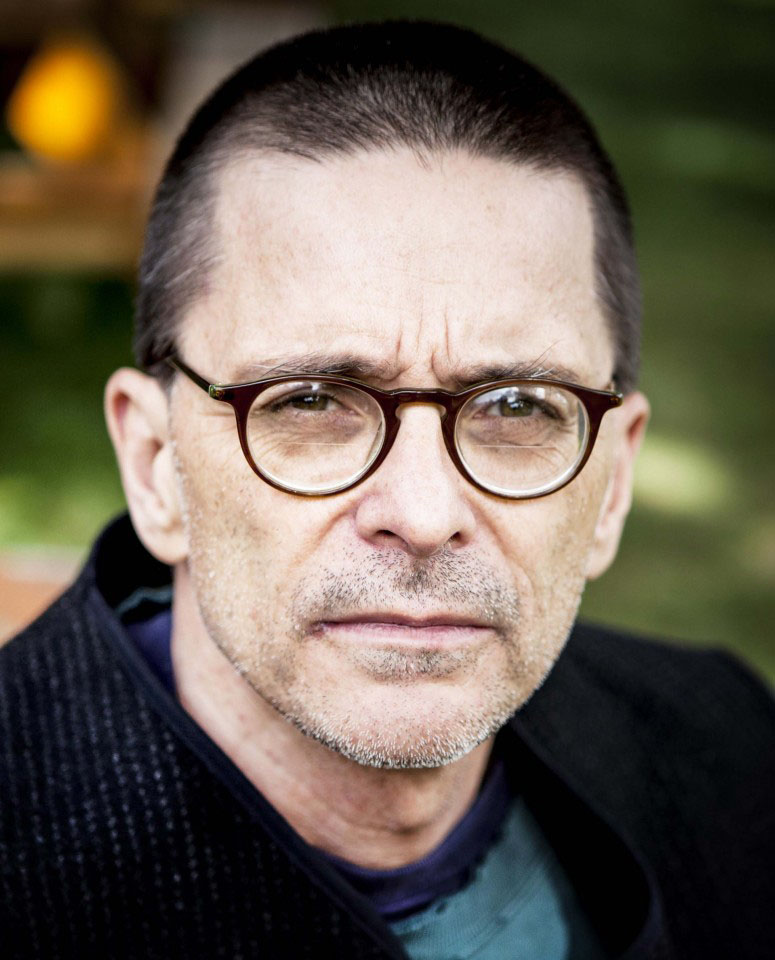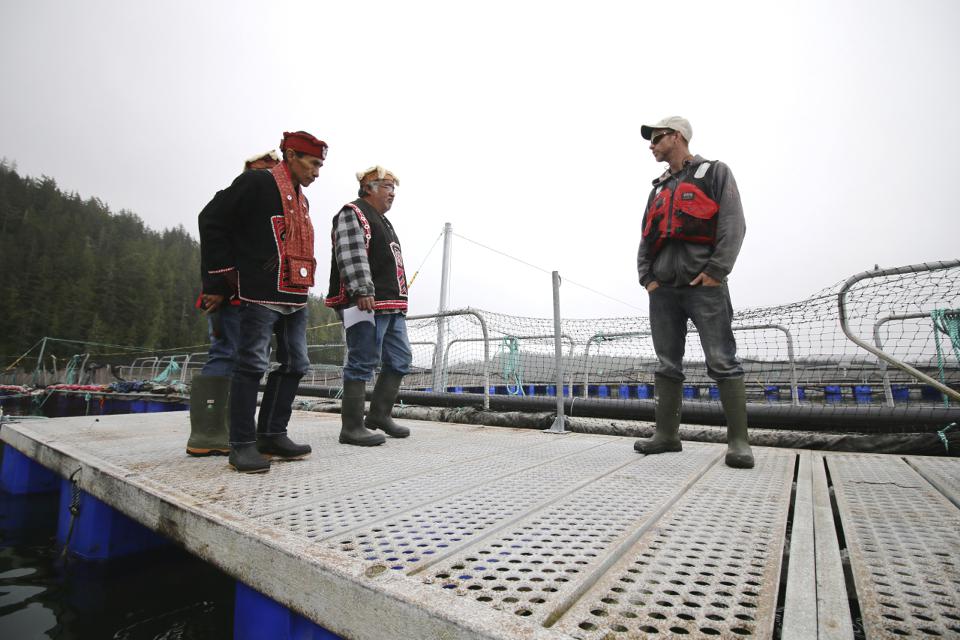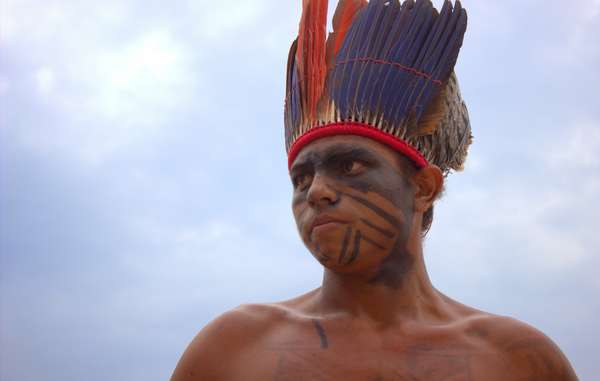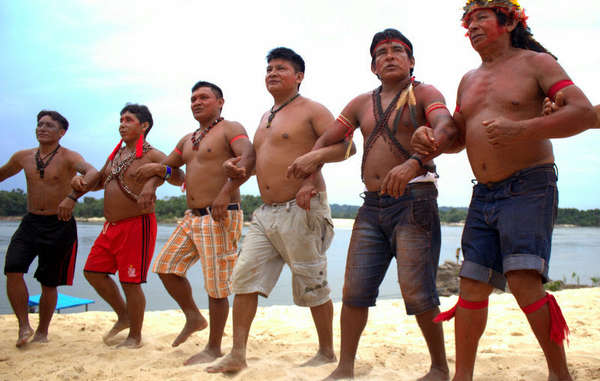
by Deep Green Resistance News Service | Sep 4, 2016 | Gender
New Books Highlight the Debate between Radical Feminism and Transgender Movement
by Robert Jensen
Within feminism there has been for decades an often divisive debate about transgenderism. With increasing mainstream news media and pop culture attention focused on the issue, understanding that feminist debate is more important than ever.
Two new feminist books that analyze transgenderism (Sheila Jeffreys’ Gender Hurts: A Feminist Analysis of the Politics of Transgenderism and Michael Schwalbe’s Manhood Acts: Gender and the Practices of Domination, which includes a chapter on “The Limits of Trans Liberalism”) are helpful for those who are concerned about the harms that result from the imposition of traditional gender roles but do not embrace the ideological assumptions and assertions of the transgender movement.
The propositions below are not taken directly from those books, whose authors may not agree with my phrasings. I am not trying to summarize their arguments but instead hope to bring greater clarity to the debate with a concise account of my position, which is rooted in a radical feminist analysis of sex and gender. I present these ideas as a series of propositions to make it easier for readers to identify where they may agree or disagree.
Biological and Cultural
We are a sexually dimorphic species, male and female. Although there is variation, the vast majority of humans are born with distinctly male or female reproductive systems, sexual characteristics, and/or chromosomal structure. Intersex people are born with reproductive or sexual anatomy that does not fit the definitions of female or male; the number of people in this category depends on the degree of ambiguity used to mark the category. Intersex conditions are distinct from transgenderism.
The biological differences between males and females that are tied to reproduction are not trivial; no species can ignore reproductive realities. Not all females have children, but only females can bear and breastfeed children, which no male can do. Therefore, human communities have always, and will always, recognize two distinct sex categories, male and female. There has always been, and always will be, some sex-role differentiation in human communities.
Other observable or measurable physical differences (average height, muscle mass, etc.) between males and females may be socially relevant depending on circumstances. Sex-role differentiation based on those differences may be appropriate if it can be shown to be necessary in the interests of everyone in a society. This claim is asserted far more often that is demonstrated.
People from varying ideological positions also claim that these biological differences give rise to significant differences in moral, intellectual, or emotional characteristics between males and females. While it is plausible that differences in reproductive organs and hormones could result in these kinds of differences, there is no clear evidence for these claims. Given the complexity of the human organism and the limits of contemporary research, it’s unlikely we will gain definitive understanding of these questions in the foreseeable future. In the absence of evidence of the biological bases for moral, intellectual, or emotional differences, we should assume that all or part of any differences in observed behavior between males and females in these matters are a product of cultural training, while remaining open to alternative explanations.
In short: males and females are far more similar than different.
Patriarchy
Today’s existing sex-role differentiation is the product of a patriarchal society based on male dominance. In that system, males are socialized into patriarchal masculinity to become men, and females are socialized into patriarchal femininity to become women.
In patriarchy, sex-role differentiation supports male power and helps make the system’s domination/subordination dynamic seem natural and normal. Moral, intellectual, and emotional traits are assigned differentially to each sex, creating what we today typically call gender roles. This patriarchal system of control—which is complex, adapting to changing conditions and to resistance—is designed to justify and perpetuate male dominance.
The gender roles in patriarchy are rigid, repressive, and reactionary. These roles constrain the healthy flourishing of both males and females, but females experience by far the most significant psychological and physical injuries from the system.
In patriarchy, gender is a category that functions to establish and reinforce inequality.
Radical Feminism
In contemporary culture, “radical” is often used dismissively as a synonym for “crazy” or “extreme.” In this context, it describes an analysis that seeks to understand, address, and eventually eliminate the root causes of inequality.
Radical feminism opposes patriarchy and male dominance. Radical feminism, which challenges the naturalizing of the process by which patriarchal societies turn male/female into man/woman, rejects patriarchy’s rigid, repressive, and reactionary gender roles.
Radical feminist politics addresses a wide range of issues, including men’s violence and sexual exploitation of women and children. Many radical feminists critique the gendered dress/grooming/presentation norms imposed on females in patriarchy, such as hyper-sexualized clothing, make-up, and ritualized behaviors of subordination, arguing for the elimination of these practices, not for males to adopt them as well.
The goal of radical feminism is a world without hierarchy, in which males and females would be free to explore the range of human experiences—especially experiences of love, whether sexual or not—in an egalitarian context.
Transgender
Transgender is defined as “A term for people whose gender identity, expression or behavior is different from those typically associated with their assigned sex at birth.” The transgender movement rejects the automatic sorting of males and females into the categories of man and woman, but does not necessarily reject gender roles. Some in the transgender movement embrace patriarchal gender roles typically attached to the cultural categories of masculinity and femininity.
While not all people who identify as transgender have sex-reassignment surgery or use hormones or other treatments to modify their bodies, the transgender movement as a whole accepts and/or embraces these practices.
Most radical feminists, who seek to eliminate patriarchy and patriarchal gender ideology, disagree with this transgender approach. Most radical feminists believe liberation is achieved through a political project that transcends patriarchal gender, rather than accepting those gender roles and merely seeking to allow people to move between the categories. Radical feminist politics focuses on challenging the patriarchal gender ideology that restricts the freedom of most individuals, especially women and others who lack power, to explore the fullest range of human experiences.
Nothing in a radical feminist analysis minimizes the social and/or psychological struggles of—nor provides support for violence against—people who identify as transgender or people who do not conform to patriarchal gender norms but do not identify as transgender. Radical feminism is not the cause of those struggles or the source of that violence but rather advocates for an egalitarian society with maximal freedom without violence.
Ecology
Many people, whether radical feminist or not, are critical of high-tech medicine’s manipulation of the body through the reckless use of hormones and chemicals (which rarely have been proved to be safe) or the destruction of healthy tissue to conform to arbitrary beauty standards (cosmetic surgery such as breast augmentation, nose jobs, etc.).
From this ecological approach, such medical practices are part of a deeper problem in the industrial era of our failing to understand ourselves as organisms, shaped by an evolutionary history, and part of ecosystems that impose limits on all organisms.
People are not machines, and treating the human body like a machine is inconsistent with an ecological understanding of ourselves as living beings who are part of a larger living world.
Public Policy
The state should not limit people’s freedom to choose, when those choices do not harm others. Disagreements can, and do, arise over identifying and assessing harms.
Transgender claims have led to a variety of policy debates, especially concerning the integrity of female-only spaces that are designed to foster a sense of safety and expressive freedom for females generally (such as cultural institutions) and particularly to create safety for females who have been victims of male violence (such as rape crisis and domestic violence centers). Forcing female-only spaces to accommodate people who identify as transgender reinforces patriarchy as a system and harms individual females.
Public funding for sex-reassignment surgery (such as through Medicare) raises serious public health questions that cannot be resolved by simplistic freedom-to-choose arguments.
Transgender practices involving children that are questionable on public health grounds (such as the use of puberty blockers) raise serious moral questions about our collective obligation for children’s welfare.
Intellectual Practice and Rhetoric
As in any contentious political debate, angry and uncivil words have been exchanged. People on all sides should be respectful and careful in choices of language.
Labeling a radical feminist position on these public policy issues as inherently “transphobic” or describing radical feminist arguments on the issues as “hate speech” are diversionary tactics that undermine productive intellectual and political discussion. A critique of an idea is not a personal attack on any individual who holds the idea.
This critical analysis does not demand that people accept these principles in constructing an individual sense of self. These propositions are relevant to such individual decisions, but are presented in the context of collective decision-making about public policy.
Conclusion
Transgenderism is a liberal, individualist, medicalized response to the problem of patriarchy’s rigid, repressive, and reactionary gender norms. Radical feminism is a radical, structural, politicized response. On the surface, transgenderism may seem to be a more revolutionary approach, but radical feminism offers a deeper critique of the domination/subordination dynamic at the heart of patriarchy and a more promising path to liberation.
Robert Jensen is a professor in the School of Journalism at the University of Texas at Austin. His books include Arguing for Our Lives: A User’s Guide to Constructive Dialogue (City Lights, 2013) and Getting Off: Pornography and the End of Masculinity (South End Press, 2007).

by Deep Green Resistance News Service | Sep 1, 2016 | Lobbying
Featured image: Leaders from Musgamagw Dzawada’enuxw First Nation recently boarded a BC fish farm to serve an eviction notice. Photo by Alexandra Morton.
By Andrew Nikiforuk / The Tyee
The Musgamagw Dzawada’enuxw, whose traditional lands includes much of the Broughton Archipelago, have boarded two Japanese-owned fish farms and delivered eviction orders to remove their operations from unceded territories over the last six days.
On Aug. 15, three Dzawada’enuxw traditional leaders served an eviction notice to a Cermaq/Mitsubishi salmon farm on the Burdwood Islands, and on Aug. 18 boats from the communities of Gwayasdums (Gilford Island), U’kwa’nalis (Kingcome Inlet) and Alert Bay arrived at the Sir Edmund Bay fish farms run by Cermaq/Mitsubishi to conduct a cleansing ceremony.
Melissa Willie, an elected councillor for the nation, said about 40 people participated in the cleansing ceremony and that more demonstrations are planned later this week.
Willie said a cleansing ceremony was necessary because fish farms have been clouded by a lot of “negativity” and environmental impacts, and her people wanted to do something positive.
“We will do a cleansing of our waters once we get these fish farms out,” Willie told The Tyee.
The Martin Sheen, a research vessel loaned by the Sea Shepherd Conservation Society to biologist and anti-fish farm activist Alexandra Morton, witnessed and filmed the delivery of the eviction notice as well as the cleansing ceremony.
Morton, a long-term foe of the controversial industry, is on a two-month mission to investigate the state of corporate fish farms, do research on virus prevalence, and provide a platform for First Nations.
Some nations support fish farms on their territory, while others such as Musgamagw Dzawada’enuxw have been fighting them and their impacts on wild fish for 30 years.
The eviction notice follows a number of developments, including the federal government’s decision to extend fish farm licences from one to six years despite recent evidence found by federal scientists of a “potential” heart disease in farmed Atlantic salmon samples collected from one B.C. fish farm.
Members of the Musgamagw Dzawada’enuxw were also shocked earlier this month when Melissa Willie visited a Cermaq farm and opened the lid of a blue-coloured tote containing dead fish netted from the facility.
Both Willie and Morton identified what they said looked like several wild salmon and other native fish (possibly herring and eulachon) in the pile. Fish farms do not have a licence to feed or harvest wild fish.
But in an Aug. 18 press release, Cermaq denied the dead fish were wild and said they were young farmed salmon.
“The small salmon carcasses found in the mort totes are Atlantic salmon grown from our own broodstock, not Pacific wild salmon as alleged. In fact, the tote in question was at our broodstock site, where we grow salmon that are several years apart in age. The age difference results in both small and large fish that, if they die, go into the same tote,” explained their press release.
Willie disagreed with Cermaq’s view of things.
“Wherever you have fish farms, there will be wild fish entering those pens. It is common sense. We all know that the herring stay by some of the farms and feed there.”
In the same press release, Cermaq accused the Sea Shepherd Society of trespassing on private property, making unsubstantiated claims, and having “taken samples of dead fish without permission and without following any proper scientific procedures.”
In contrast, Willie said her people would like to thank Sea Shepherd for joining them in their fight.
Notice gives three months to pack up
The eviction notice gives the corporate farms three months to pack up their operations.
It also demands that no more farmed fish be transferred into the First Nation’s traditional territory and that the nation be allowed to take fish samples from the farms anytime it wants to determine what types of disease or parasites might be present.
“The people who are benefiting from these farms are benefiting over the suffering of our people,” said Dzawada’enuxw hereditary leader Farron Soukochoff in a press release.
The Musgamagw Dzawada’enuxw First Nations have opposed corporate salmon farming on the grounds that open-net feedlots invite diseases and waste that have had a deleterious impact on wild fish, including herring and five varieties of Pacific salmon.
“We, the Musgamagw Dzawada’enuxw view the destruction of wild fish by the fish farming industry as part of the long history of genocide forced on our people by the governments of Canada,” reads an Aug. 18 press release. “Salmon are essential to our well-being and the well-being of our world.”
According to a recent report, the number of young wild salmon leaving Dzawada’enuxw territory in the spring of 2015 could have been reduced by nine to 39 per cent due to sea lice from salmon farms.
Along with the eviction notice, the Musgamagw Dzawada’enuxw have set up a website called “cleansing our waters.”
Approximately one-third of the corporate feedlots growing Atlantic salmon along B.C.’s coast are located on Dzawada’enuxw territory.
A 2008 scientific study found that wild salmon populations declined wherever corporations have set up industrial fish farms in the ocean including Norway, Scotland, Ireland and Canada.
“We have heard the words of Prime Minister Justin Trudeau, that honouring the rights of First Nations are a ‘sacred obligation’ to the Liberal Government of Canada,” said Musgamagw Dzawada’enuxw hereditary leader and chief councillor Willie Moon at a cleansing ceremony at the Sir Edmund salmon farm at the entrance to Kingcome Inlet.
“Our people have spoken: we want salmon farms out of our territory.”
In a prepared statement, Jeremy Dunn, executive director of the BC Salmon Farmers Association, said that the industry has 20 agreements with First Nations that cover “78 per cent of the annual harvest of farmed salmon.”
“Our members are always open to meeting and discussing issues with First Nations and would like to develop agreements in areas where they do not exist today,” added the statement.
Dunn told The Tyee that many First Nations have tried to evict corporate farms in the past but later signed financial agreements with the industry.

by Deep Green Resistance News Service | Aug 27, 2016 | Obstruction & Occupation
By Deep Green Resistance Seattle
A coal train entering Bellingham, Washington has been blockaded by a fossil fuel resistance group, including members of Deep Green Resistance. This blockade, part of an ongoing regional campaign against fossil fuels, has been standing strong for six hours – with no end in sight.
Beginning at four PM this afternoon, protestors erected a portable tripod structure in the middle of a rail bridge crossing Mud Bay south of Bellingham. One protester has climbed to the top and will stay until removed by police.
The organizers of the blockade say that fossil fuels must be stopped to save the planet from global warming.
When asked about her motivation for joining the resistance movement, one Deep Green Resistance member responded, “We won’t be complicit in a global catastrophe. The government and the capitalists are working together to kill the planet. We’re going to work together to stop them.”
With two refineries sitting north of town and a tar sands pipeline running underneath, Bellingham has been in the sights of the fossil fuel industry for decades. The struggle to keep fossil fuel transportation out of the small city has been ongoing. The Lummi Nation and other local resisters recently defeated plans for a major coal export terminal. However, coal merchants continue to push for the project.
The protest also delayed passenger trains, but organizers aren’t overly concerned. When asked about possible inconveniences to travelers, a protestor responded, “What’s inconvenient is losing your island to rising sea levels, or having your home flooded in Baton Rouge, or digging mass graves in Pakistan in anticipation of heat waves.” She also noted that Amtrak was notified to minimize delays in passenger transportation.
From Deep Green Resistance Seattle: http://deepgreenresistanceseattle.org/resistance/direct-action/activists-stage-coal-train-blockade-bellingham-train-stopped-5-hours-counting/

by Deep Green Resistance News Service | Aug 10, 2016 | Strategy & Analysis
Featured image by Vanessa Vanderburgh
By Joanna Pinkiewicz / Deep Green Resistance Australia
Most people in the industrial civilized world will come to a point of crisis, loosely translated from its Greek origin as: “testing time” or “an emergency event.”
An ongoing feeling of pressure, instability or a threat can all bring on such crisis. These events shake our whole being, alarm our physical bodies and rupture our rational mind. The advice for dealing with a crisis that is perceived as “personal” or “individual” often follows a set of clear, practical steps:
- Slow your breath to anchor yourself in the present
- Take a note of your emotions or bodily sensations
- Open up and express your thoughts
- Pursue a valued course of action
The last step is particularly interesting, as it suggests questioning: What do I value the most? What do I stand for? How do I want to see myself respond?
As much as a crisis brings many negatives, such as anxiety and depression, it also brings an opportunity to re-examine our lives and expand our understanding of what is happening in the world or to the world around us. It forces us to examine and to make a choice: are we going to be a bystander or are we going to become courageous in the face of a looming threat?
Research on the psychology of resistance suggests, that access to support and the right type of information is crucial to help those wanting to understand what is really happening to us and the world, as well as, what can be done to address it.
The authors of Courageous Resistance, The Power of Ordinary People list certain factors that contribute to ordinary people becoming resisters in the face of injustice or impending threat. These include a combination of:
- Preconditions: previous attitudes, experiences and internal resources
- Networks: ongoing relationships with people that offered information, resources and assistance and
- The Context itself: political climate, severity of the situation
We understand courageous resistance to be a conscious process of decision making, which is affected not only by who the decision maker is, but where they are and who they know at the particular time they become aware of a grave injustice…
We define “courageous resisters” along three dimensions: First, they are those who voluntarily engage in other-oriented, largely selfless behaviour with significantly high risk or cost to themselves or their associates. Second, their actions are the result of a conscious decision. Third, their efforts are sustained over time. [i]
Humanity today faces ongoing stress from living in the civilized world. By and large, we have managed to adapt to changes that have been imposed on us, such as higher density living and working conditions. However the escalated threat of armed violence and impending effects of climate change bring on new types of crises, which needs not only immediate response, but creation of a completely new culture. The current culture likes us to believe that the crises we are experiencing are “individual,” due to a weakness or an illness. If we choose to believe this, we are more likely to suffer from helplessness and not participate in creating this new culture.
Aric McBay explains this in Deep Green Resistance, Strategy To Save The Planet:
If someone is dissatisfied with the way society works, they say, then it is that individual’s personal emotional problem. Furthermore, the individual traumas perpetuated by those in power on individual people, on groups of people, and on the land, can seem random at first glance. But if we can trace them back to their common roots—in capitalism, in patriarchy, in civilization at large—then we can understand them as manifestations of power imbalance, and we can overcome the learned helplessness…[ii]
To begin to create a culture of resistance individuals must drop loyalty to the oppressive status quo and its systems. Two things may prevent us from fully committing to resistance: fear of punishment or separation from our kin (friends, family). While loss of “belief” in “redeeming” the existing culture is a first step towards resistance, separation from dependency on the existing systems is gradual.
As building an effective resistance culture is a long process involving generations, we must be wise at preserving our health and using our resources.
Listed below are steps that effective groups or communities follow in response to a crisis that is not personal, but wide spread and caused by either natural (earthquake, flood) or man-made circumstances (occupation, oppression, ecocide).
- Prepare: clarify our values, recruit people, gather resources, and devise the strategy
- Respond: assign roles and responsibilities, implement strategy
- Recover: extend support networks, rebuild communities, and establish new organizations
Resilience building will come from commitment and co-operation in all of those stages. After the recovery from a crisis, a group gains valuable experience and is able to refine the “emergency” response plan and train newcomers.
Experience of past resisters demonstrates rise in organisational, strategic and physical skills among individuals as well and rise in strength and independence of a group.
I am thankful for my crisis. Like a loud warning siren it told me that things are not right in the world, that I must increase my awareness and prepare for the future.
My crisis led me to discover techniques and practices that reconnected me with my body. I discovered that reconstruction of mental and physical health goes hand in hand with protecting the environment. By recognising the physical and spiritual nourishment we receive from our forests, rivers, oceans, a commitment to environmental action is born.
Taking responsibility was the first step to my healing and the beginning of an authentic life. Such path does not require perfection, but courage and imagination to create new ways of living and existing. To work as a collective in the name of all nature’s communities is a revolutionary path of resistance we desperately need today.
Deep Green Resistance is a global radical environmental organization with a strategy to address our impending planetary crisis. We have recruited capable and experienced individuals to guide and work together in implementing our strategy and fulfill our vision to dismantle the industrial civilization, assist the planet’s recovery and build sustainable communities with decentralized governance.
Join the many existing chapters or start a new one! Become a conscious resister!
Notes:
[i] Thalhammer, Kristina E.; O’Loughlin, Paula L.; Glazer, Myron Peretz; Glazer, Penina Migdal; McFarland, Sam; Shepela, Sharon Toffey; Stoltzfus, Nathan. Courageous Resistance, The Power of Ordinary People. New York: Palgrave Macmillan, 2007.
[ii] McBay, Aric; Keith, Lierre; and Jensen, Derrick. Deep Green Resistance: Strategy to Save the Planet. New York: Seven Stories Press, 2011.

by Deep Green Resistance News Service | Aug 8, 2016 | Indigenous Autonomy
Featured image: On the eve of the Rio Olympics, Brazil has blocked a dam which would have destroyed forest of the Munduruku tribe © Maíra Irigaray/Amazon Watch
By Survival International
As the Rio Olympics kick off, Brazil has blocked the construction of a controversial dam in the heart of the Amazon rainforest.
The São Luiz dam, planned for the Tapajós river, threatened to flood the Munduruku Indians’ forest and force many off their land.
The Munduruku, like all indigenous peoples, depend on their land for their survival, but industrialized society is trying to steal it and plunder its resources in the name of “progress” and “civilization.” The Munduruku have been firmly opposing the São Luiz dam, and dozens of others planned for the region.
The dam’s environmental licence was shelved this week following the Munduruku’s resistance, pressure from public prosecutors and experts on the ground, and reports by Brazil’s Indigenous Affairs Department and Environment Ministry.
Alongside their struggle to stop the dams, the Munduruku have embarked on a landmark mission to map out their ancestral territory and protect it from illegal miners and loggers. The Brazilian government has failed to uphold its constitutional duty to do this, leaving the land open to destruction.
Munduruku leader Suberanino Saw said, “Our struggle is dangerous, but we know we will win.”

The Munduruku Indians have been firmly protesting a series of dams on the Tapajós river. © Maíra Irigaray/Amazon Watch
Tribal peoples are the best conservationists and guardians of the natural world.
Together with tribes across Brazil, the Munduruku are also protesting plans to change the law and drastically weaken indigenous peoples’ land rights. One of these plans, known as “PEC 215,” would give anti-Indian landowners and others the chance to block the recognition of new indigenous territories – and it might even enable them to break up existing ones.
Survival’s “Stop Brazil’s Genocide” campaign, launched in April 2016 for the run-up to the Olympics, is galvanizing global support for the Indians’ resistance against PEC 215, and calling for the protection of the land of uncontacted tribes, the most vulnerable peoples on the planet.






